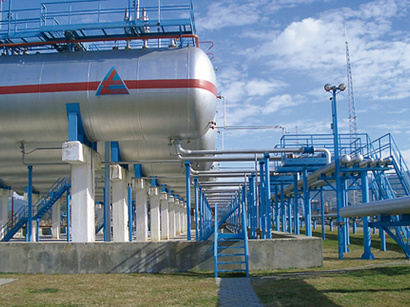Thinking near term: LNG is Iran's best change for gas export to Europe

Iran is more than willing to sell its gas to Europe but the country might not be able to do this very soon, US expert on Central Asia and energy issues Bruce Pannier believes.
“To export large volumes of gas, pipelines are required and currently there are no pipelines linking Iran to Europe,” Pannier told Trend.
On January 16, the International Atomic Energy Agency verified Tehran’s compliance with the Joint Comprehensive Plan of Action (JCPOA), opening the way for Iran's return to the global energy market. The same day, the US and the European Union announced that they were lifting their sanctions against Iran.
The removal of sanctions against Iran will allow the country not only to increase its oil production and export, but also to become one of the major gas exporter to the global markets. Iran holds 17 percent of the world's proved natural gas reserves and more than one-third of OPEC's reserves, according to the US Energy Information Administration (EIA). As of January 2015, Iran's estimated proved natural gas reserves were 1,201 trillion cubic feet.
The country is also the world's third-largest dry natural gas producer, after the US and Russia.
Pannier mentioned that Iran has expressed interest in joining the Trans Anatolian gas pipeline project, which is aimed at the transportation of Azerbaijani Shah Deniz field’s gas from Georgian-Turkish border to the western borders of Turkey.
“SOCAR (State Oil Company of Azerbaijan) has expended significant time and resources toward realizing the project. I cannot imagine Baku would want to share pipeline capacity with anyone for the foreseeable future, so more pipelines need to be built,” Pannier said.
Iran's ambassador to Azerbaijan Mohsen Pak Ayeen recently said that after the removal of sanctions, Tehran is capable of joining major regional projects such as TANAP. Meanwhile, SOCAR high representative said that the commercial supplies of Iranian gas via TANAP have not been discussed up till now.
There are also questions about the diplomacy involved in Iran joining a pipeline project through Turkey since Tehran and Ankara are not on the best of terms, according to Pannier.
Meanwhile he believes Tehran will attempt to improve relations with Ankara because Turkey is the best (quickest and most economical) route for Iran to ship anything to Europe.
“The EU would probably encourage better ties between Ankara and Tehran and any gas pipeline projects carrying Iranian gas through Turkey could qualify to be considered as part of the EU’s Southern Gas Corridor,” Pannier said.
“And yes, there is certainly a large amount of money to be made, and not just by Iran as transit countries such as Turkey stand to gain,” he added.
At the same time, Pannier believes that LNG is probably Iran’s best opportunity for exporting gas to Europe in the near future.
“In some ways, Iran is fortunate that many European countries have already constructed or are constructing terminals to receive LNG, although the plans envisioned receiving LNG from North Africa and possibly some Gulf states, and sometime in the next decade, possibly from the US also,” he said.
“So some of the necessary infrastructure is already in place and more is currently under construction. These terminals could take Iranian LNG as well, and it’s worth mentioning the current political situation in North Africa cast some doubts about supplies from that source,” Pannier added.
Iranian officials have stated that export of LNG to Europe is a priority for the country.
Iran has already developed an LNG plant by 50 percent, which is expected to become operational in 2018 with 10.5 million tons annual production capacity. Within the next three years the country expects to launch five LNG projects.
Currently Iran reportedly is in talks with France, Germany and Belgium for construction of LNG tankers.
Pannier believes that Iran will be able to attract investments to develop necessary infrastructure in energy sphere.
“Reports said deals worth some $18 billion were signed when Iranian President Hassan Rouhani was in Italy and billions more in contracts were expected to be signed during his visit to France,” Pannier said.
“But if Iran really needs the investment now, and if it wants to continue receiving foreign investment in its projects, the country might have to learn to become an easier partner to deal with,” Pannier added.
---
Follow us on Twitter @AzerNewsAz
Here we are to serve you with news right now. It does not cost much, but worth your attention.
Choose to support open, independent, quality journalism and subscribe on a monthly basis.
By subscribing to our online newspaper, you can have full digital access to all news, analysis, and much more.
You can also follow AzerNEWS on Twitter @AzerNewsAz or Facebook @AzerNewsNewspaper
Thank you!
